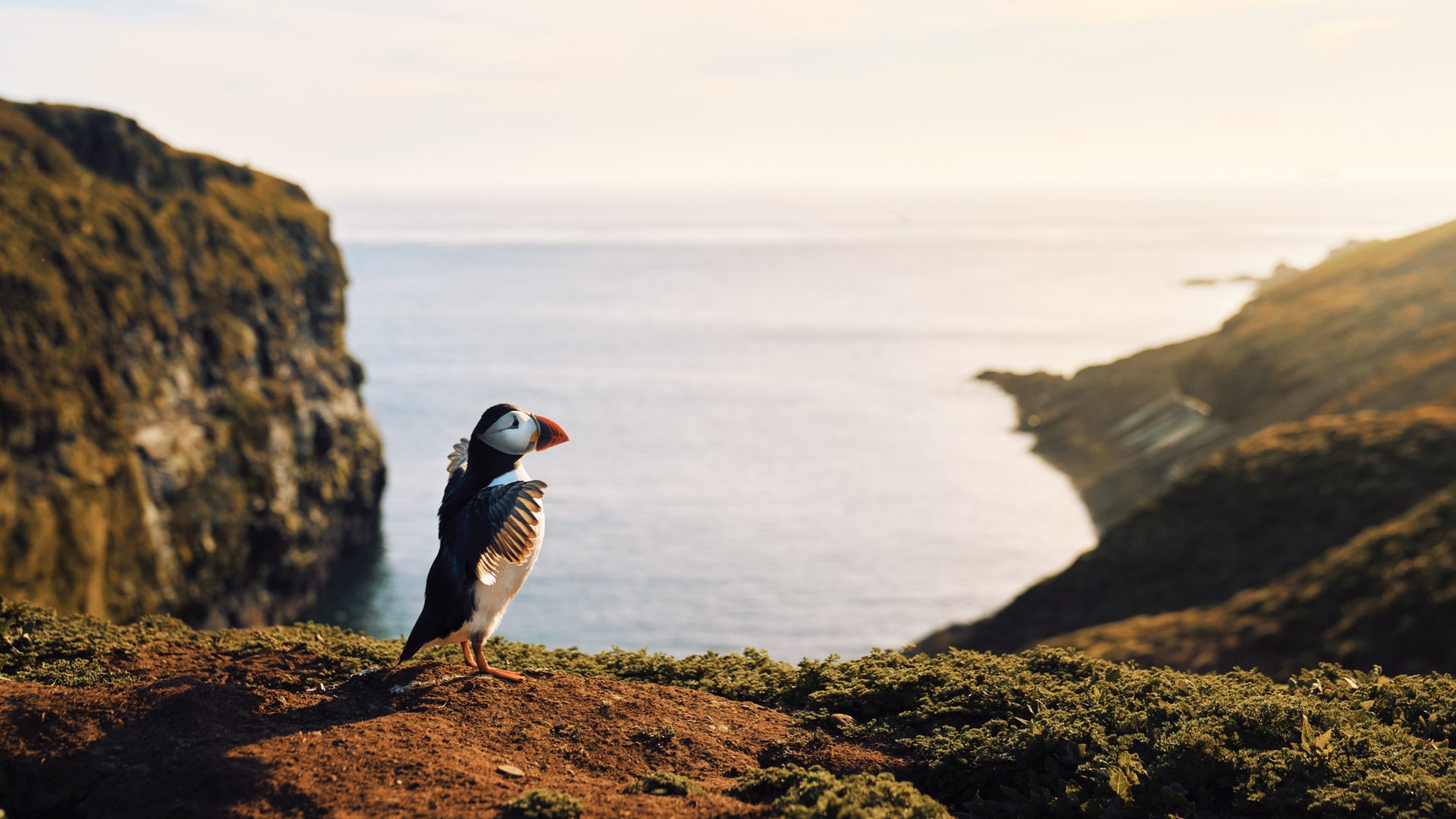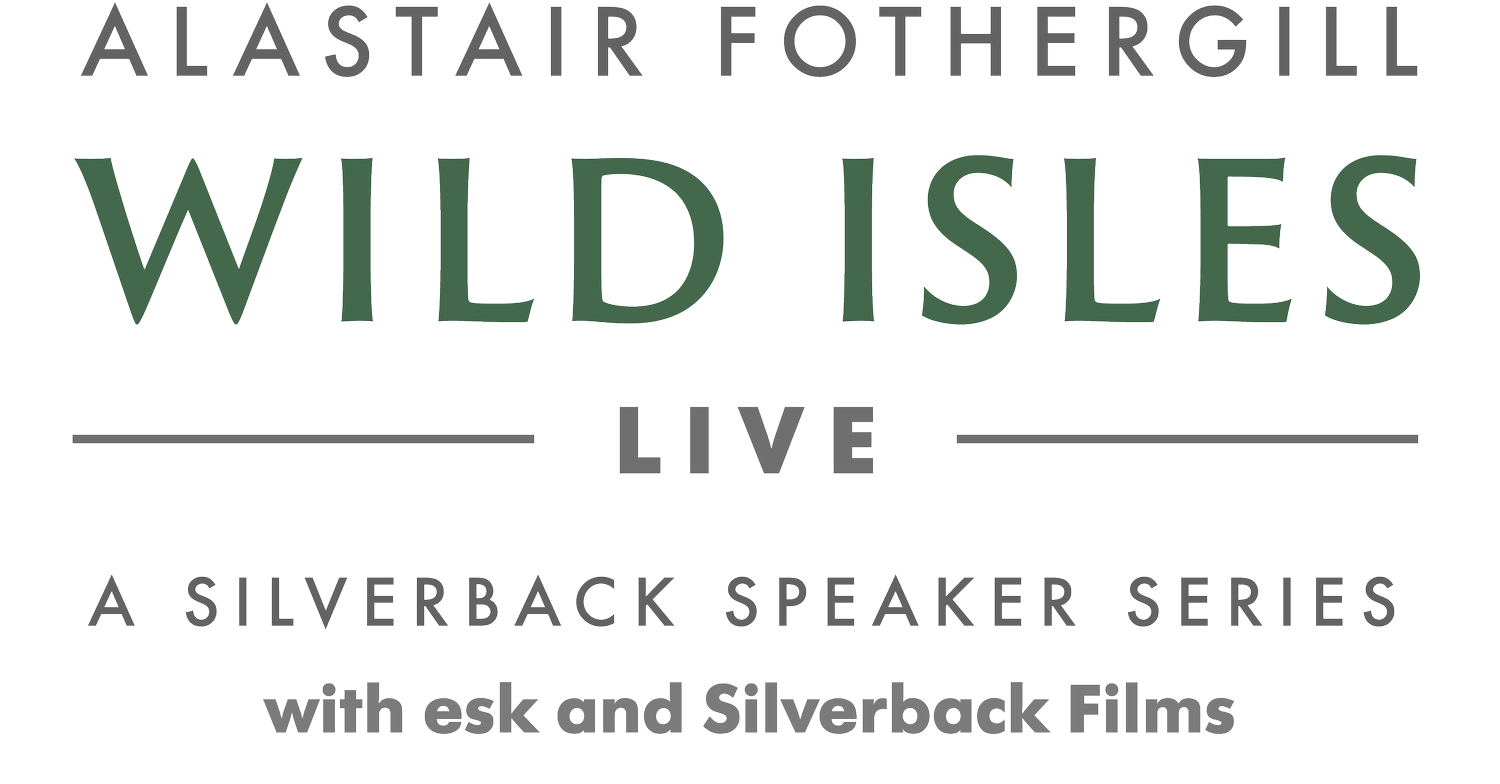Watch the series
-

Episode One
Filmed in extraordinary detail, killer whales hunt for seals in our seas, golden eagles scavenge in snowy Scottish mountains, sinister woodland plants take pollinating insects hostage, and puffins are chased by greedy gulls that try to steal their hard-won catch.
-

Episode Two
In an ancient pine tree in the Cairngorms, two eagle chicks are on the verge of fledging their gargantuan nest. In winter in the Forest of Dean, the reintroduction of wild boar has given the robin a lifeline. As they root through the thick snow, the boar unearth the worms with their snouts, which the robins otherwise couldn't find.
-

Episode Three
In southern England, we meet an extraordinary bee that lives in chalk grassland, one of our rarest habitats, laying her eggs in empty snail shells. Meanwhile, in the colourful machair of the Hebrides, ringed plovers and lapwings strive to rear their families of tiny fluffy chicks and to save them for marauding gulls.
-

Episode Four
Determined Atlantic salmon battle their way upstream in one of the greatest migrations on the planet - fighting against the flow and the odds to get back to their breeding grounds in the uplands. Beavers slow the flow down with their dam building, in the process creating habitat for creatures such as raft spiders that thrive in these slow-moving watercourses.
-

Episode Five
in winter, clear evidence of the ocean’s abundance can be seen on a beach in Norfolk. Thousands of grey seals congregate on the shoreline to give birth. Britain and Ireland are home to 40 per cent of the world’s grey seals, and the number being born on our shore rises every year. Once the newly born pups are weaned, the females are ready to breed again, and heavyweight males enter violent, bloody fights to win a stretch of beach, and the females along with it.
-

Saving our Wild Isles
Description goes hereIn a special documentary commissioned by the RSPB, WWF and the National Trust and inspired by Wild Isles, we hear the real stories of passionate people who are trying to restore biodiversity to the British Isles.
The Charities
-

World Wildlife Fund UK
The leading global environmental charity bringing our world back to life. With nature in freefall, they’re urgently tackling the underlying causes that are driving the decline, and we’re finding solutions so future generations have a world with thriving habitats and wildlife.
WWF-UK co-produced BBC Wild Isles, working alongside Silverback Films, The Open University and the RSPB to reveal a previously unseen wild side of the UK – and show why our isles are so important globally for nature.
-

Royal Society for the Protection of Birds
The RSPB work to advance the conservation of birds, other wildlife and the natural world, by protecting and restoring habitats and landscapes, saving species and connecting people to nature.
The RSPB co-produced BBC Wild Isles to give an eye-opening look at the wealth of wildlife we’re lucky to have in the UK and highlight that sadly, the same landscapes and creatures that surprise and delight in the series are under threat.
-

National Trust
As Europe’s largest conservation charity, the National Trust looks after nature, beauty and history for everyone to enjoy with the help of millions of members, volunteers, staff and donors. The look after miles of coastline, woodlands, countryside and hundreds of historic buildings, gardens and precious collections for those to enjoy today and into the future.
The National Trust, alongside the RSPB and WWF-UK commissioned the Saving Our Wild Isles documentary, exploring why UK nature is now at breaking point and what can be done to save it.
-

Save our Wild Isles
Save Our Wild Isles is the first major joint campaign from WWF-UK, the RSPB and the National Trust, calling on our leaders to immediately halt to the destruction of UK nature and take urgent action for its recovery.
The UK’s wildlife is amazing – but it’s in crisis. Over the last 50 years, 38 million birds have vanished from our skies, 97% of our wildflower meadows have been lost, and a quarter of all our mammals are now at risk of extinction.
Together, we can all play our part to protect our natural world – our life support system.
